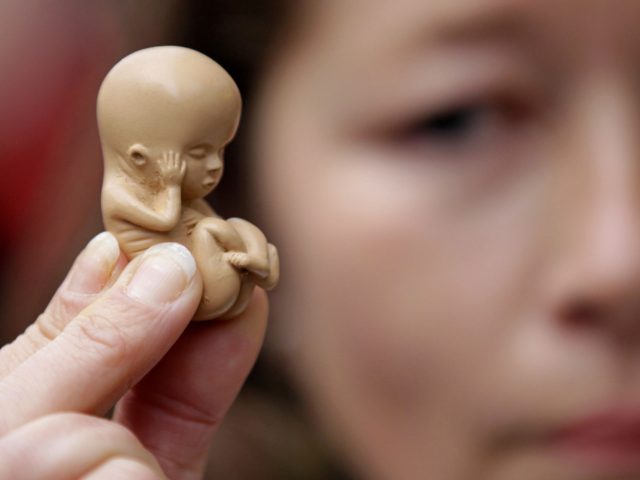(You) are a rank dirt bag for throwing out this vi
Post# of 129198

Study Uncovers Potential Dangers of Drug-Induced Abortion

A new study by researchers at Franciscan University of Steubenville has uncovered the potential dangers of drug-induced abortion. After three years of research, a team of behavioral neuroscientists has found the possibility of significant harmful biological and behavioral effects caused by drug-induced abortion.
The study, “Biological, Behavioral, and Physiological Consequences of Drug-Induced Pregnancy Termination at First-Trimester Human Equivalent in an Animal Model,” investigated the effects of the abortion-inducing drugs mifepristone (RU-486) and misoprostol in rats in a controlled environment. Based on the animal models, the researchers found significant and harmful behavior changes in pregnant rats who were given the abortion-inducing drugs, compared to rats that did not receive the drugs and those that received the drugs but were not pregnant.
According to a press release from Franciscan University of Steubenville, results of the study, which was published in Frontiers in Neuroscience, revealed the following:
Among the biological, physiological, and behavioral changes exhibited by the rats in the abortion group were a loss of appetite, decreased exploratory movement, decreased self-care, and changes in vaginal impedance—a factor that appears to relate to fecundity, or the ability to reproduce—that were not present in the pregnant rats that carried their pregnancy to term. The findings suggest behaviors consistent with a wealth of scientific literature documenting the effects of moderate to severe stress on animal models, which scientists have long used due to the similarities in brain mechanisms between rats and humans.
Dr. Stephen Sammut, psychology professor at Franciscan who led the study, said the research is “breaking new ground” in the area of the mental health effects of abortion on women.
“In the animal model, we observed depression-like behaviors, and we saw anxiety-like behaviors,” he explained in a statement. “The biochemistry indicated potentially long-term effects.”
Sammut added the findings suggest that social pressure or stigmas – which abortion rights activists often claim are the cause of depression and anxiety in women who have had abortions – are an inadequate explanation of the possible negative effects caused by abortion-inducing drugs.
“There is something more than social pressure on a person who feels depressed after an abortion,” he said. “There are potential physiological consequences that have not been investigated.”
The question of the potential for the presence of institutional bias in favor of the abortion industry has long been an issue among researchers who have wanted to subject abortion-inducing drugs to rigorous scientific investigation.
“Medical abortion researchers focused on how fast the drug could kill the baby and how much effort it would take on the part of the abortionists to handle complications,” said Dr. Donna Harrison, executive director of the American Association of Pro-life OB-GYNs, in a statement. “This study (the first not performed by the abortion industry) raises serious concerns about mental health effects of drug-induced abortions and the differences between spontaneous and induced abortion. Such studies should have been performed long before drug-induced abortion was allowed on the market.”
According to data available at the Centers for Disease Control and Prevention (CDC), in 2015, 24.6 percent of all abortions in the United States were drug-induced.
Former abortionist Dr. Anthony Levatino describes in the medical animation video below what occurs during a drug-induced abortion:
 (0)
(0) (0)
(0)